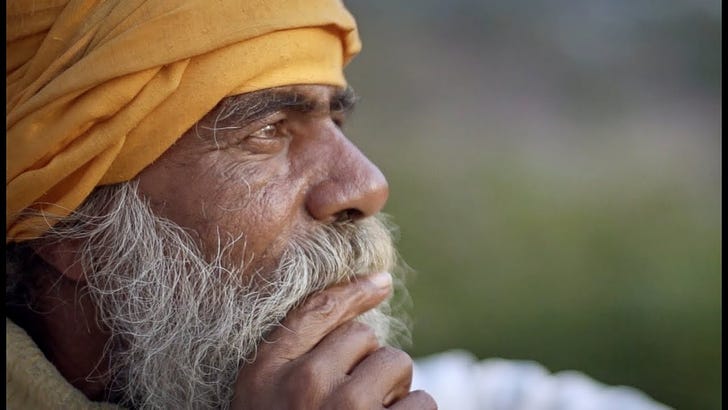Dear friends,
Welcome to ABCs of MS, or welcome back! If you enjoy today’s newsletter and you haven’t already subscribed, please do. It will ensure the newsletter is delivered right into your email. Also, please share with your friends, and especially with those you might know who have MS or family members with it.
Writers have lots of different things they do when they settle in to write. Some create a sacred space by lighting a candle, some wear a special item of clothing - all manner of things. When I write, I come to sit with an idea brewing and choose a piece of music or an album (or perhaps it chooses me). I turn it up and see what comes.
Moving forward, I’m going to share the piece of music that inspired the entry. I hope you might find some pleasure in it. For this post, the music was Moby’s The Last Day.
We hope you have a great week. Thank you again for being here with us.
-Jane & Emily
Fatigue: feeling exhausted and drained. It’s become a buzzword recently. Covid fatigue is in the news constantly due to the last couple of years of worry, stress, and loss. Covid has also led to zoom fatigue caused by people spending hours staring at screens forced to work via their computer. Fatigue in multiple sclerosis is something that the majority of people with MS have to deal with at some point, and it is something that needs to be understood better by people who don’t have it. It is one of several invisible symptoms people with MS may have that isn’t something an onlooker can see.
In my last article, I talked about how important it is for me to be able to lie down, and how it’s taken me a few months to be able to get my legs on my bed. Unfortunately, I haven’t been able to get my legs up since that fortuitous day. I’ve been able to swing them up far enough that they’re almost on, but they require a nudge to secure them from falling off. Luckily my partner, T, has been working from home and so has pushed them the last few centimeters, preventing tears of frustration.
There are two reasons lying down is vital in my world. The first is to relieve pain from neuropathy, and swelling in my feet and ankles due to blood pooling from lack of movement. More on that another time. The second is that when fatigue hits I feel like I might expire unless I am reclined with my eyes closed pretty much immediately.
Fatigue and MS
According to the National MS Society, 80% of people with MS deal with fatigue, and it is the number one reason why people with MS leave the workforce. There are two types of fatigue that people with MS deal with. Fatigue resulting from day-to-day activities as well as additional factors that come from living with the disease; and MS Fatigue or lassitude, which is fatigue uniquely experienced by people with MS. Lassitude is described by the Merriam-Webster dictionary as burnout, collapse, exhaustion, frazzle, prostration, and tiredness. Where fatigue can be limiting, lassitude is debilitating.
People living with MS experience fatigue the same as the rest of the world; from things such as late nights, stress, covid, and working on zoom. But, we have additional causes. For example, we might lose sleep due to muscle spasms, and bladder problems. We may not sleep well due to lack of exercise, and we may have depression that causes sleeplessness or a want to sleep. We may also be on medications that interfere with sleep or cause drowsiness, too.
On top of this, depending on the severity of the disease, we might also get fatigued from doing everyday tasks such as getting dressed, cleaning our teeth, or preparing a meal that others can manage seamlessly. Let’s imagine I want to fasten a zipper on my cardigan. My fingers are weak and my fine motor skills limited, so it takes an enormous amount of focus and concentration to pinch grip the zipper in the first place. Then trying to place the zip into the clasp takes another ginormous amount of willpower. By the time I’ve got the zipper together as well as attempted to pull it up, I’m pooped. I’d compare that task to asking your average Joe to run a mile. On top of the zipper, add a few more normal, everyday tasks, and I’m ready for a nap. It sounds pathetic, but it’s real. Because MS is a disease that affects the central nervous system, doing anything can be exhausting. Just being can be exhausting.
Fatigue and Me
I’ve always been a fan of bed. Being snuggled into a cozy duvet is one of my favorite activities. Napping and sleeping are my friends, so stopping for a nap due to fatigue wasn’t and isn’t a struggle for me. Spaniards have been enjoying afternoon siestas for centuries.
My mum is a big believer that a good night’s sleep is as good a remedy as anything. “You’ll feel better in the morning,” was often spoken in my home growing up. One of her favorite stories about me originates from a party she and my dad had. The story goes that she told me it was time for me to do my magic trick. Instead of complaining that I wanted to stay up longer, I announced to the guests that I was going to bed. As I bounded up the stairs, I waved goodnight and sprinted to my room. When I reached the foot of my bed, I dove into my sheets. By the time my head touched the pillow, my mum says, I was asleep. The guests were amazed. Why didn’t their kids do that?
I was diagnosed with MS when I was 28 and warned that I might experience fatigue. I had a one-year-old, Emily, and soon became pregnant again with her brother. I napped when Emily napped and continued through her and her brothers’ early years. When they gave up napping, I introduced quiet time. It became a game, I’d set them up in their bedrooms with piles of books and quiet toys, set my alarm for an hour, and rested. We played who could be the most quiet. They were brilliant at it.
Since I felt the first symptoms of MS, I continued to nap when fatigued, listening to my body and mostly heeding its desire when time allowed. I learned that I did best and felt most refreshed if I napped for less than 30 minutes. When I had relapse-remitting MS (the type that comes and goes, my diagnosis for the first 15-years), if I needed to nap more frequently than two or three times a week, it often meant I was at the start of an episode.
Now that I have secondary progressive MS, if I have plans, I know to schedule rests on the day of and day after. I might need a whole day or two after an evening out to regroup and feel capable again. Because I’m no longer working, it’s easier for me to rest on demand.

Lassitude: A More Vicious Type of Fatigue
Unlike fatigue which can be traced back to a reason, such as an excursion of energy, lassitude makes no sense. Even scientists aren’t sure what causes it. There isn’t any reason for lassitude to strike when it does. I could have been in bed by 10 pm, woken up at 7 am, and by 9:30 feel like I’ve had every ounce of energy sucked from me. Where I can grind my way through fatigue, attempting to fight lassitude is like trying to read a novel in Russian.
I noticed lassitude occurring more and more as my disease progressed from relapse remitting to secondary progressive. It went from wanting a nap to needing one, to requiring it. I was a middle school teacher when I was diagnosed with secondary progressive MS. Like lots of teachers, I often napped after school. But, it got to the point where after I’d driven the 30 minutes home I was too tired to get out of the car. I was utterly spent. I’d sit in the driveway with my eyes closed sometimes for an hour or more waiting for T to get home and help me into the house. Once inside he’d put me to bed where I crashed for a few hours, woke up to eat, and still managed to sleep soundly through the night. It was when this began happening often, along with other increasing symptoms that my therapist gently suggested I start thinking about looking into going on disability leave from work. She helped me to understand that I wasn’t just ‘teacher tired’. I was suffering from MS fatigue or lassitude.
There have been a couple of times over the past few months when I’ve experienced lassitude and have so desperately needed to be horizontal that I’ve pulled myself out of my wheelchair and laid on the floor because I couldn’t get into bed. I tried resting my head on the table and closing my eyes, but it didn’t help. Even though I knew that I’d be there until T came home to help me, it was a feeling that consumed me and I felt like I’d die if I didn't. I have a plan in place if I need to do that again. I’ll pull a pillow and blanket onto the floor and go into my bedroom which is carpeted, but hopefully, my leg fairy will help me get my legs on the bed.
There is no cure for fatigue or lassitude, it’s one of the many symptoms of multiple sclerosis. It’s one that might not be visible to people around, and it is a battle that one often suffers silently. It’s also one that the person with MS needs to figure out strategies to cope with, and I hope that their friends and family members try to understand.
And with that, I’m off for a nap. x














Share this post